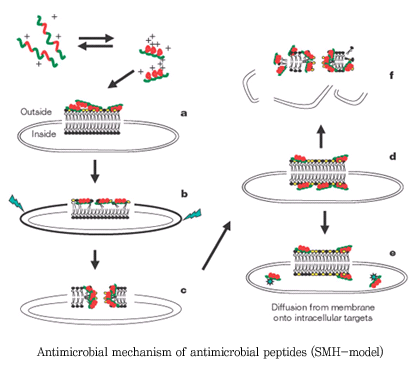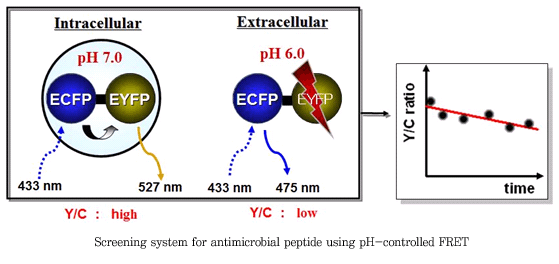| Conventional chemical-based antibiotics such as penicillin usually destroy bacteria by blocking synthesis of the bacterial cell wall or by disrupting the translational machinery. However, due to the wholesale use of chemical antibiotics over the past decades, many bacteria have become antibiotic-resistant. Amphipathic peptides, which have both hydrophilic (cationic) and hydrophobic properties, have been found in organisms ranging from bacteria to humans; many of these peptides have antibiotic properties, including effects against multi-drug resistant bacteria. Although the mechanism of antimicrobial peptides (AMPs) action is not clearly understood, the AMPs are generally believed to bind to lipopolysaccharide (LPS) on Gram-negative bacteria or lipoteichoic acid on Gram-positive bacteria. This charge-based binding perturbs the fundamental structure of bacterial membranes, forming transient pores that eventually lead to bacterial lysis. Owing to the potential superiority of AMPs as antibiotics, many researchers have sought to screen potential candidate peptides from various types of organisms. However, the traditional screening methods used to test AMP candidates have proven time-consuming and laborious, limiting the effectiveness of these studies. To overcome these limitations, here, we introduce a novel fluorescence resonance energy transfer (FRET)-based assay for rapid and high-throughput screening of AMPs. For mass-production, AMP was directly fused with novel fusion partner, baculoviral polyhedron (Polh), to prevent host bacterial cells from cytotoxic effects by expressed AMP and improve recovery yield of recombinant AMPs by simple elimination of Polh using unique property of fusion partner.


|
